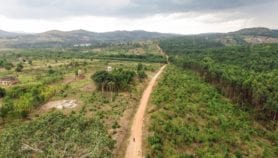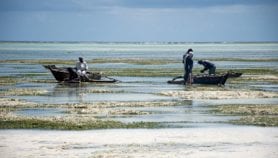By: Katie Mantell
Send to a friend
The details you provide on this page will not be used to send unsolicited email, and will not be sold to a 3rd party. See privacy policy.
 |
Soaring pollution levels, land degradation, droughts and wildlife losses are among the threats to the continent outlined in the UNEP report Africa Environment Outlook (AEO). In addition, climate change and the uncontrolled expansion of cities will have an increasing impact over the next three decades.
“This pioneering assessment on the state of Africa’s environment will be invaluable for governments on the continent and across the world in prioritising efforts to achieve a new dawn for these lands,” said Klaus Toepfer, executive director of UNEP, at the launch of the report in Kampala, Uganda.
“It will also be a vital report for nations meeting at the World Summit on Sustainable Development (WSSD) which opens at the end of August in Johannesburg.”
The report shows that, despite contributing very little to global greenhouse gas emissions, Africa is extremely vulnerable to the impacts of climate change because of its dependency on agriculture and the lack of financial resources to offset adverse impacts.
Global warming could increase the frequency and severity of droughts, lead to rising sea levels — with particular risks for countries such as Senegal, Egypt and the Gambia, and cause the extinction of plants and animals, it warns.
It also predicts that malaria-carrying mosquitoes will spread to Namibia and South Africa over the coming decades.
The report, which UNEP describes as “the most comprehensive and authoritative assessment of the continent’s environment ever produced,” was compiled for the African Ministerial Conference on the Environment (AMCEN) currently being held in Kampala, Uganda.
It states that air pollution is also a threat in the continent, which has the highest rate of urbanisation in the world. In Northern Africa, for example, many cities experience levels of sulphur dioxide double the World Health Organisation’s standards.
However, the report acknowledges that many African countries are now attempting to address some of the root causes of environmental degradation through initiatives such as the New Partnership for Africa’s Development (NEPAD).
But a far bigger effort, both within and outside the continent, is needed to steer Africa on a prosperous, environmentally sustainable course, it says.
Actions include bigger cuts in Africa’s debt burden, a boost in overseas aid, enforcing environmental agreements, introducing green and clean technologies and allowing African countries fair access to international markets.
AMCEN should also “identify scientific and technological gaps, particularly relating to environmental management,” it says, and should “guide African governments in accessing appropriate indigenous and external technologies in order to enhance environmental management and economic development”.
“The right decisions cannot be made without the right facts,” said Toepfer. “At the beginning of this new century we have all the resources, both financial and technological, to build Africa and the lives of its citizens and to conserve its astonishing biological richness and diversity.”
“I urge countries across the world to take the findings from the AEO and finally seize the opportunity to deliver responsible prosperity to this continent.”
© SciDev.Net 2002
Photo credit: Lutheran World Relief













